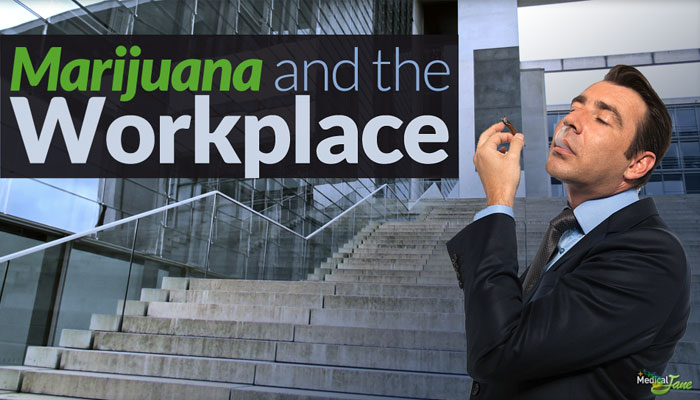
Marijuana and the Workplace: A Budding Controversy
Medical Marijuana and the Workplace
The struggle to balance company policy, employee rights, state law, and federal law has been an unpleasant juggling act for CEO’s ever since the installment of the first medical marijuana programs. While no state has legalized the use of marijuana in the workplace, there are many implicit protection clauses in the measures on medicinal marijuana. The exemptions section of the New Mexico medicinal marijuana measure states that a registered marijuana patient can’t be arrested or subject to “penalty in ANY manner,” for using medicinal marijuana. Whether losing your job is considered a “penalty,” remains subject to judicial interpretation. It’s a no brainer to many, especially those affected most by the laws.
Recent Case in New Mexico May Set Precedent
A woman working in the state governments’ Personnel Office of New Mexico, filed a lawsuit claiming she lost her job as a result of her participation in the states medical marijuana program. According to the company, she showed up to work, “glassy eyed,” and her performance suffered as a result.
“Nonetheless, the woman was told that she is at risk of losing custody of her children over the matter. The ruling on this case is extremely crucial, as it will serve as a guideline for similar lawsuits as they become more prevalent.”
While the law does not protect the use of cannabis at the workplace, it does not go into specifics such as impairment on the job from prior medical cannabis use (outside the “workplace,” which is not defined by the law). Nonetheless, the woman was told that she is at risk of losing custody of her children over the matter. The ruling on this case is extremely crucial, as it will serve as a guideline for similar lawsuits as they become more prevalent.
Arizona’s state law explicitly prevents an employer from firing an employee for the use of medicinal marijuana. The only way the employer could justify firing the employee is if, and only if, failure to do so would cost the employer a monetary, or licensing benefit. This law is a change for the better, but still leaves employees vulnerable, seeing as how it is fairly easy for a company to claim that poor performance could cost the company monetarily.
How Should Job Performance Be Measured?
Of course, there are indeed certain occupations where drug testing should be required. These jobs include (but are not limited to); airline pilots, bus drivers, big rig truck drivers, oil/gas/pipeline workers, and other jobs where safety is a major concern. However, for occupations in which high performance is imperative, and measurable, drug policies seem to be a waste of time and money.
“If companies would direct their money and efforts towards measuring the actual performance of employees while on the job, there would be no laws stopping them from firing low performers.”
If companies would direct their money and efforts towards measuring the actual performance of employees while on the job, there would be no laws stopping them from firing low performers. This makes more sense managerially, and is, in theory, more cost effective than drug screening. Instead of U.S. corporations spending millions per year on drug tests, they should be making changes to their behavior and performance policies, developing enhanced performance measuring procedures with their extra funds. This would place all current, and potential employees, on an even playing field in the workplace and prevent further discrimination.
Treating Cannabis Like Other Prescription Drugs
Could this be an obvious issue involving the violating worker’s rights? That’s for you to decide. There are millions of workers who drive to work every day, and carry out their jobs on prescription drugs like Percocet, Vicodin, and Oxycontin. The drugs show up on the same pre-employment drug tests that marijuana patients fail, yet for some reason they are pardoned if they provide the employer with their lawful prescriptions. Employers should at least begin to acknowledge marijuana patient’s prescriptions, and treat them equally as employees. Only when an employee’s role as a worker is being jeopardized by drug use (of any kind), then an employer should have every right to take action.
More Helpful Resources for Marijuana and the Workplace:
- http://www.abqjournal.com/main/2012/12/02/news/medical-marijuana-in-the-workplace.html
- http://www.acdl.com/New%20Logo%20Guides/E7%20New%20Logo.pdf
- http://www.blr.com/HR-Employment/Performance-Termination/Alcohol-and-Drugs-in-New-Mexico
- http://www.cnbc.com/id/36179669/The_DrugFree_Workplace_vs_Medical_Marijuana
- http://www.accountingweb.com/topic/accounting-auditing/managing-medical-marijuana-use-workplace